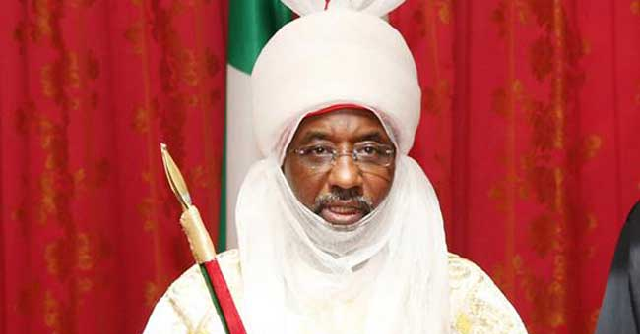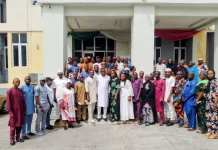Sanusi Lamido, the former Emir of Kano and ex-Governor of the Central Bank of Nigeria (CBN), has expressed support for the CBN’s plan to relocate selected departments from its Abuja headquarters to Lagos. In a statement on Thursday, Sanusi described the move as “eminently sensible,” citing the larger infrastructure capacity available in the Lagos office.
The decision by the apex bank to relocate certain departments to Lagos had sparked controversies, especially from the Northern political class, who argued that such a move might exacerbate economic disparities between the North and South.
Sanusi, however, advised the current CBN Governor, Olayemi Cardoso, not to yield to political pressures surrounding the contentious decision. He emphasized the importance of the CBN making principled decisions and urged the Governor to proceed despite the opposition.
The former CBN Governor highlighted his own experience, mentioning that when he was about to obtain a banking license for Jaiz Bank, there was opposition on religious grounds. He ignored the noise and licensed the bank, stating that similar objections from ethnic and religious bigots would always arise.
Sanusi revealed that he had contemplated a similar relocation during his tenure as CBN governor but was unable to implement the plan due to time constraints. He explained that, in his vision, departments like Financial System Stability (FSS) and most operations would be moved to Lagos, while certain functions would remain in Abuja.
He dismissed opposition to the policy as “absolutely unnecessary,” emphasizing that the CBN already had staff operating across the country in its branches and cash offices. Sanusi also challenged claims about inadequate office structures, suggesting that Julius Berger, a renowned construction company, could provide clarification if needed.
According to Sanusi, the real challenge lies in some CBN employees prioritizing their Abuja lifestyle and businesses over their roles at the central bank, especially when they are children of politically exposed individuals.













